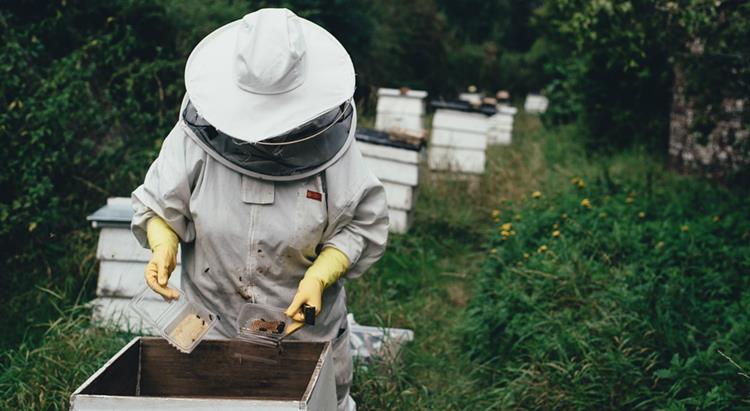21 May 2019

The States Vet is urging bee keepers to be vigilant following a confirmed case of a disease that affects honey bees.
Since American Foulbrood was first found in Jersey in 2010, Natural Environment has reduced its prevalence by advising bee keepers and monitoring and destroying affected hives. Although the number of cases has fallen, the disease has always been expected to persist at a low level and, after a five-year gap since the last case, the disease was again confirmed this month.
States Veterinary Officer, Theo Knight-Jones, said: “Although we suspected that American Foulbrood was still present in Jersey, it had not been detected since 2014. The recent case comes as a timely reminder that bee keepers need to be aware of the disease, and take action to prevent it spreading.
“Any islander keeping bees should inspect their hives regularly for any signs of infection. Anyone that suspects that their hives might be infected with a notifiable disease should contact the States Veterinary Office to report their concerns.”
The disease, which kills bee larvae (young bees), occurs when the bacteria gets into a beehive and forms resistant spores. The bacteria feeds off of the larvae, causing them to die and giving the capped cells, housing the dead larvae, a sunken appearance.
Although the disease does not harm adult bees, it is highly infectious. Adult bees from a diseased hive can easily spread it to other healthy colonies. Bee keepers can also unwittingly spread the disease by moving equipment from an affected hive into a healthy hive.
Mr Knight-Jones also reminded islanders that anyone keeping bees needs to make sure that their bee hives are registered.
“Having a record of bee keepers, and knowing where hives are located, allows us to easily share information and advice,” he said. “This is particularly important when it comes to diseases – being able to communicate quickly and effectively can help to stop diseases spreading.
“Any bee keeper that hasn’t registered their hives must take steps to sign up – it’s a legal requirement and the process is quick, simple, and free.”
Information about American Foulbrood, and other notifiable diseases that affect honey bees, can be found on gov.je.
Any bee keeper needing to register their hives should visit gov.je/bees or contact Natural Environment on bees@gov.je or +44(0)1534 441 600.